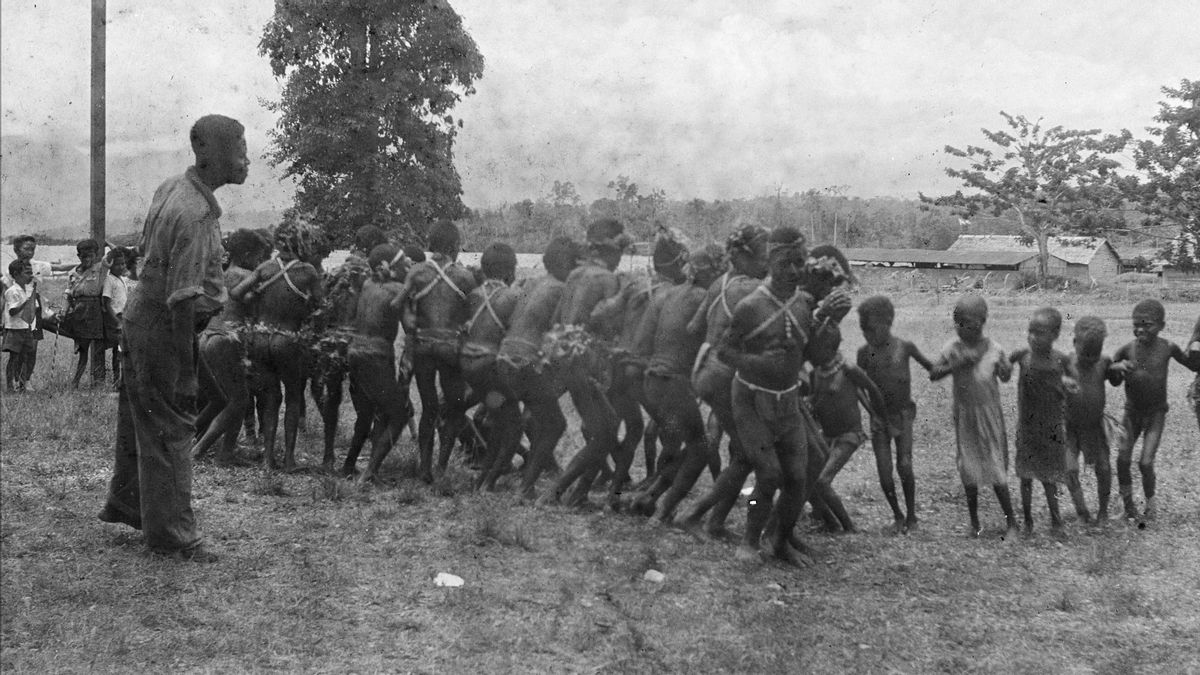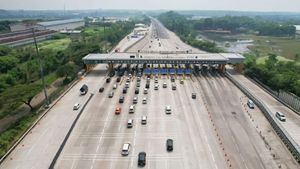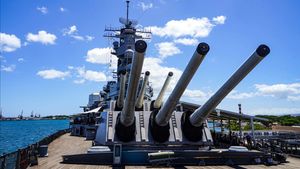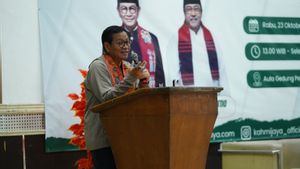JAKARTA - For Soekarno, the problem of seizing West Irian (Papua) was a crucial personal matter. Without West Irian, the archipelago would not be completely Indonesia. A series of efforts were made by Indonesia's first president. Speaking on the national to the international pulpit is an option. Bung Karno did not give up. Tired of diplomacy, Tri Komando Rakyat (Trikora) in 1961 emerged as Bung Karno's final attempt. West Irian has become part of Indonesia completely.
Bung Karno's love for West Irian was anything but trivial. Even though Indonesia had been independent since 1945, Bung Karno considered independence incomplete without the union of West Irian. As quoted by Agus Dermawan T, in the book Dari Lorong-Lorong Istana Presiden (2019), this continued when the Netherlands only truly recognized Indonesian sovereignty in 1949. However, in this recognition, the Dutch did not give up West Irian.
To that end, Bung Karno took the diplomatic route for eleven years. The West Irian issue reached the UN forums in 1954, 1955, 1957 and 1960. The results were nil. Bung Karno was running out of patience. As a result, Bung Karno launched the Tri Komando Rakyat (Trikora) in North Square, Yogyakarta on 19 December 1961.
Bung Karno instigated Trikora to fuel the enthusiasm of the Indonesian people to reclaim West Irian. The number one Indonesian has mandated efforts to thwart the formation of the puppet state of Papua made in the Netherlands, Raise the Red and White in West Irian, and defend the integrity of the country.
"Now I ask my brothers and sisters, to the international community, why the Dutch made West Irian a puppet of Papua. The Dutch incited the people of West Irian to carry out a policy of dividing Indonesia's sovereignty by establishing the Papua State, raising the Papuan flag, creating the zoogenamde national anthem, "a piece of Trikora Soekarno's speech at that time.

Love for West Irian
Not once or twice did Bung Karno express his love for West Irian. In almost every moment Bung Karno always showed his love for West Irian in his speeches to the Indonesian people. In fact, Bung Karno had made an analogy of West Irian as part of the body. Which, if one of the pieces had been lost, then the balance would not be possible.
“Compared to our archipelago, West Irian is only as wide as moringa leaves, but West Irian is part of our body. Would someone let one of his limbs be amputated without putting up a fight?" Bung Karno said, quoted by Cindy Adams in the book Bung Karno: Penyambung Lidah Rakyat Indonesia (1965).
The West Irian problem then became personal. Bung Karno was still ready to carry out various kinds of negotiations to take West Irian. However, because Indonesia relies too much on diplomacy and cross-talk, the Dutch appear to be cheating. As a result, Indonesia is often harassed at UN forums. The proposal for West Irian to become part of Indonesia was rejected.
In the end, Bung Karno was angry and lost his temper. A year after announcing Trikora, he tightened the narrative of seizing West Irian even more. Included in a visit to South Sulawesi. In front of the people of Celebes in 1962, Bung Karno promised that he would soon fly the Red and White on the land of West Irian.

"God willing, it will be soon and within this year the Red and White will fly in West Irian. We will not care whether the invasion of West Irian will be shocked or not. We don't care, we don't care, because it returns Irian. The West into the territory of the Republic of Indonesia is a firm determination of the Indonesian nation and bloodshed that does not depend on the Indonesian nation, "said Bung Karno's speech quoted by Rosihan Anwar in the book Sukarno, Tentara, PKI: Segitiga Kekuasaan Sebelum Prahara Politik, 1961-1965 (2006).
In the same breath, everything became centered on the struggle for West Irian. Because of the importance of West Irian, Rosihan Anwar revealed that Bung Karno had forgotten to solve the problem of rising prices for goods. On the one hand, Bung Karno did this to realize his dream so that West Irian would become part of Indonesia. On the other hand, the other Indonesian people are in dire condition.
“Since these days my wife has been dizzy looking for bread for the children to eat at school. Since there was no flour, the bakeries messed up their work plans. The audience felt the consequences. Fresh bread is difficult to obtain and if there is a piece price of Rp. 30 to Rp. 35, whereas several months ago the price was only Rp. 10 a piece, "said Rosihan Anwar.
Bung Karno's move was also described by Sukawarsini Djelantik in the book Asia-Pasifik: Konflik, Kerja Sama, dan Relasi dan Antarkawasan (2015), as a form of political and economic interests. Because West Irian is a country rich in natural resources (SDA), Indonesia has economic interests. As is well known, Bung Karno knew West Irian did not only store petroleum, but also uranium. In an atomic age like that time, these findings were very important.
In this long journey, West Irian also managed to unite with Indonesia in May 1963. In the negotiations between Indonesia and the Netherlands brokered by the United States, the Netherlands agreed to budget 30 million dollars per year for the development of West Irian through the United Nations. Meanwhile, Indonesia was obliged to carry out "self-determination" for the people of West Irian in December 1969.
Racism in Papua

Nevertheless, Bung Karno's power over West Irian was quite short because it was replaced by President Soeharto's government. The welfare narrative that Bung Karno had originally promoted was not followed up by other leaders. As a result, West Irian, which became known as Papua, became the poorest region with the lowest human resource index. Moreover, on the national map, the Papuan people often come into contact with structural racism.
Taken from The Conversation, the problem of structural racism against Papuan Native (OAP) is a reflection of racism that is rooted in history. Racism, since the Dutch East Indies colonial era, has grown in Papua.
OAP does not have an equal position with non-Papuan Indonesians. The persistence of this situation was strengthened because the Dutch colonialists were reluctant to assign Dutch citizens to Papua. In exchange, the Company sent non-Papuan Indonesians called "amberi" as policy makers.
After that, amberi was considered an accomplice to the colonial government. Meanwhile, OAPs who have dark skin are placed as a primitive society and are not competent to represent their own group.
From there, institutionally, OAP began to be eliminated from the government in its own land. This position fosters a sense of amber superiority over OAP. Moreover, this was manifested through the poor treatment of amberi to OAP.
Then, it is the root of racism that develops to this day. Papuan different identities and cultures are forcibly assimilated to become part of the nation. This condition is exacerbated by national development which tends to have a Javanese-centric breath.
Papua then, as before, remains left behind and impoverished in the midst of massive exploitation of natural resources. Racism also lasts, as well as poverty which is increasingly rampant.
The English, Chinese, Japanese, Arabic, and French versions are automatically generated by the AI. So there may still be inaccuracies in translating, please always see Indonesian as our main language. (system supported by DigitalSiber.id)









